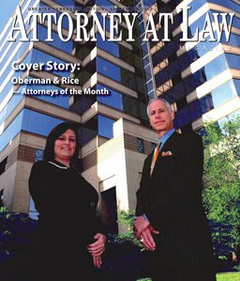Forfeiture proceedings are civil actions, but are typically initiated in conjunction with an arrest for a criminal offense, and begin with the seizure of property. The basis for initially taking the property is the allegation that the property was connected to criminal wrongdoing, such as Driving Under the Influence. Any property is subject to seizure depending on the circumstances, but cash and automobiles are the items most commonly seized.
A person who is convicted of a second offense DUI, who commits a third or subsequent violation of DUI or, in some cases, Driving on a Revoked License, is subject to having the vehicle he or she was driving seized and forfeited to the State. If the owner’s interest in the automobile is forfeited, the State may sell the vehicle and keep the proceeds. The State may elect, however, to use the vehicle for government purposes.
Likewise, any cash, automobiles, or other property used in the commission of certain drug offenses are also subject to seizure and forfeiture. Property may also be forfeited if found to be the proceeds of any criminal offense.
In order to contest the forfeiture of property, a claimant must ordinarily file a petition for the return of the property within 30 days of receipt of the Notice of Seizure. Failure to file a claim within this period may act as a waiver of any right the driver or any other property owner has to recover this property. The claimant must also include with their petition the anticipated court costs or a cost bond as security for the court costs.
Accordingly, it is imperative that a person consult with a DUI attorney in Knoxville, TN or the jurisdiction in which the property was seized as soon as possible following the seizure. One should confer with a Tennessee DUI lawyer promptly to ensure compliance with the complex rules and regulations of the Tennessee Department of Safety.
Property may be subject to forfeiture even if the person from whom the property is being forfeited is acquitted or found not guilty of the charge underlying the initial seizure. Because the facts, law, and circumstances of each case vary, it is important for person in need of a Tennessee DUI lawyer to meet individually with counsel to obtain specific advice. The information contained on this website is no substitute for individual consultation.
Featured Posts
 June 10, 2025
June 10, 2025
Tennessee License Revocation for Accidents or Points
The Tennessee Driver Improvement Program is a uniform system established to authorize the Tennessee Department of Safety (“TDOS”) to evaluate driver records for those who have been involved in motor vehicle accidents and/or sustained convictions for moving traffic violations. […]
Read More May 19, 2025
May 19, 2025
New DUI Law to Stop the Arrest of Innocent Drivers
Governor Bill Lee has now signed 2025 Senate Bill 1166 into law. It is now designated as 2025 Public Chapter 327. This law originated due to the investigation by WSMV TV (Channel 4) in Nashville, Tennessee. They requested, analyzed and […]
Read More March 25, 2025
March 25, 2025
Tennessee Drivers’ Licenses May Go Electronic
Tennessee Senate Bill 1297 was introduced this year proposing to allow Tennesseans to use Digital Driver’s Licenses (DDLs) as a valid form of identification wherever an ID is legally required, except for voting. The DDLs would allow Tennesseans to download an […]
Read MoreContact
Office
Oberman & Rice
550 Main Street
Suite 730
Knoxville, TN 37902
Phone Number
(865) 249-7200
(865) 540-1696 (fax)
GPS Coordinates
Long: 35.970504
Lat: -83.914776
Useful Links
contact us today for a free consultation
We reply to non-urgent after-hours requests for consultation within 24 hours. For after-hour emergencies, please call us at (865) 249-7200.














